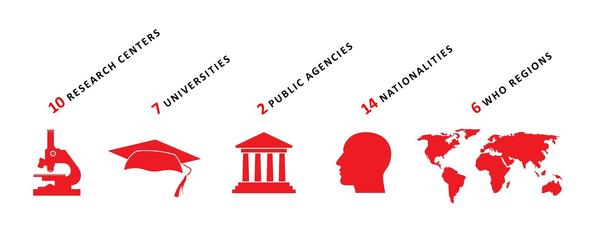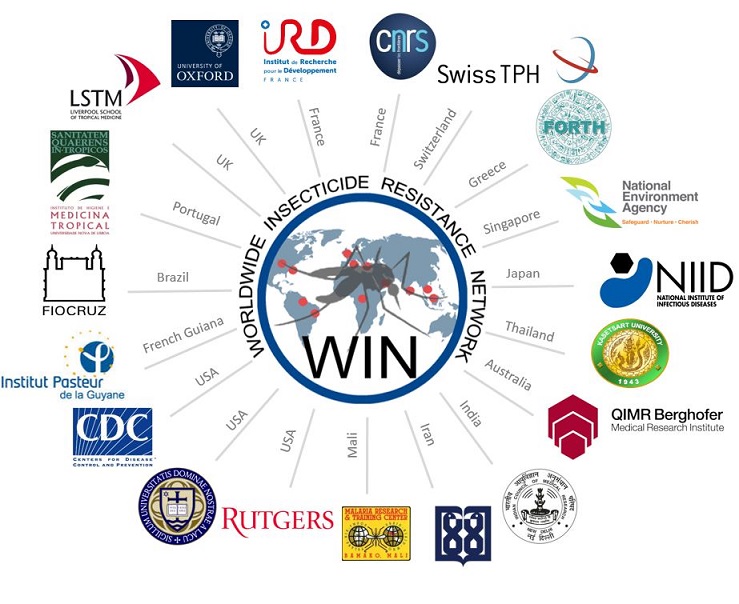The Network
The WIN is bringring together 19 internationally recognized institutions in vector research , providing a unique framework for tracking insecticide resistance in mosquito vectors of arboviruses around the world. The network aims at identifying the particular countries/regions where resistance could challenge vector control interventions and to provide the WHO and member states with key recommendations for improvement of insecticide resistance surveillance and deployment of alternative vector control tools.
It was initiated by TDR , the Special Programme for Research and Training in Tropical Diseases, in coordination with the World Health Organization’s Neglected Tropical Diseases Department. It is led by the Institut de Recherche pour le Développement (IRD) based in Montpellier, France and the Centre National de Recherche Scientifique (CNRS) based in Grenoble, France. It involves initially 16 research institutes located in each of the five regions of the World Health Organization (WHO). Six partners are based in low- and middle-income countries (French Guiana, Iran, Thailand, India, Brazil, Mali). The teams provide a deep range of experience in medical entomology, vector biology and control, insecticide testing and evaluation, insecticide resistance, population genetics, geographical information systems and remote sensing, and genetics and molecular biology.
19 research partners across the world including 6 Low- and Middle-Income Countries, LMICs (Brazil, French Guiana, Iran, India, Mali, Thailand) with complementary expertise in insecticide resistance (from vector biology and control to resistance diagnostic tools and spatial modeling).






